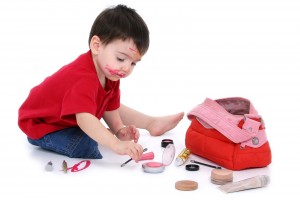Receive your FREE Parenting Advice through this blog. Simply ask Bob Lancer your question and receive his Lancer’s Answer in this blog.
When you think about child behavior problems, you are viewing a scene in your mind.
Notice how you feel when you think of your child behaving poorly.
You no doubt feel stress, probably some anxiety, maybe feelings of powerlessness, perhaps even feelings of animosity.
While thinking of your child behaving poorly, it is really NOT your child who is causing you to feel those unpleasant reactions. It is your thinking.
One interesting aspect about the mind is that we automatically begin looking for whatever we imagine to be true.
So when you envision your child demonstrating behavior problems, whether you are thinking of the past or anticipating the future, you make it more likely that you will SEE your child behaving poorly, and that you will NOT notice how your child behaves well.
Advice for parents:
Think about how you would love your child to behave, and stop thinking
about the ways that your child behaves that you don’t like,
and you will see how much better your child behaves.
Whenever you think of your child, practice deliberately thinking of him behaving wonderfully.
Refuse to dwell on thoughts of your child behaving poorly.
Think about your child displaying the positive behaviors you want in place of any disturbing behaviors.
As you practice this consistently, you will realize that improving child discipline begins with improving the parent’s MENTAL discipline.
How often do you think of your child behaving in disturbing ways?
What child behaviors would you like to see
in place of those disturbing behaviors?
In this blog, share your thoughts and questions about the role of thinking as it relates to solving child behavior problems.
Receive your FREE Parenting Advice through this blog. Simply ask Bob Lancer your question and receive his Lancer’s Answer in this blog.





 button.
button. 


































